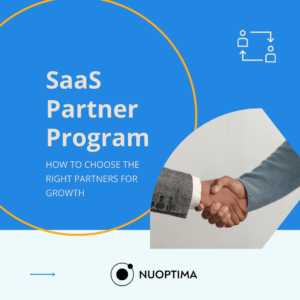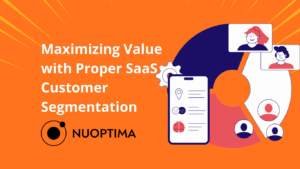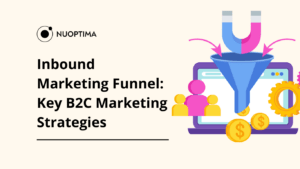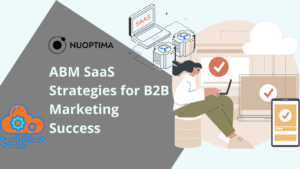Most SaaS companies say acquiring customers and increasing MRR are their top marketing goals. But with fierce competition, standing out requires more than just a great product.
The best SaaS companies grow 10-17% per month.[1] This growth rate demands a unified approach to digital marketing for SaaS, and only companies who have it can talk about increasing customer acquisition and retention.
If you want to be among these most successful SaaS companies, hang on because we’re walking you through some of the most successful digital marketing strategies for SaaS that are proven to increase your MRR. Combined with examples and expert tips from seasoned SaaS digital marketers, you’ll know exactly which steps to take to achieve your marketing goals.
Top Digital Marketing Strategies for SaaS That Increase MRR
SaaS digital marketing is an extremely broad topic. You can’t take one tactic and expect for it to bring you the 10-17% increase in MRR every month. Instead, you need to take a step back and understand your SaaS product’s broader digital marketing strategy.
This involves integrating your marketing efforts to cover every stage of the SaaS customer journey, from awareness through conversion and retention. You can’t just start posting random blogs on your website; you need to implement various tactics that cater to both acquisition and retention. Only then will you enjoy high SaaS ROI and increased MRR month over month. Partnering with a dedicated SaaS content marketing agency can help ensure that your strategy is both comprehensive and optimized for long-term success.
And today, we’re teaching you all these tactics in theory and action!
Organic Marketing
If you want your customers to go beyond the free trial and sign up for a monthly or even annual plan, they need to trust you. For SaaS businesses, organic marketing is particularly effective in building trust and establishing authority in your niche.
Organic marketing is all about leveraging non-paid channels to grow your user base by building long-term relationships with your target audience. And there are many channels your SaaS business can use for organic marketing, and we’re covering the ones with the highest long-term ROI.
SEO
SEO is the best organic channel for SaaS companies, period.
The reason is simple—a piece of content you publish today can bring you new customers five years from now. When you optimize your website for search engines, your potential customers will easily find you. There are two aspects of SEO for SaaS companies:
- On-Page SEO
- Off-Page SEO
You have direct control over on-page SEO, which involves the content you create and the technical optimization to improve your visibility.
Off-page SEO is all about creating partnerships with different websites and SaaS link building to support your content and increase visibility further.
When it comes to the type of content best suited for SEO, blog posts are definitely the type that brings the most traffic. But traffic isn’t everything; SEO is also great for converting readers into paying users.
To drive significant traffic with blogs, you need to publish them regularly (at least 2-3 times per week) and cover relevant topics for your target audience. Focus on answering common questions, providing how-to guides, and offering insights to help them recognize your product as the go-to solution.
For SaaS companies looking to maximize their paid search efforts, leveraging expert SaaS PPC strategies can further enhance acquisition tactics by driving targeted traffic and increasing conversions efficiently.
Another type of content you need to create is landing pages. Creating optimized landing pages for specific keywords and customer personas will improve your search rankings but, more importantly, conversion rates.
If you’re looking to maximize the effectiveness of your landing pages and overall SEO efforts, consider working with an SEO agency specialized in SaaS. This partnership can help ensure your content and landing pages are fully optimized for search visibility, leading to higher rankings and conversions.
Compared to blogs, landing pages target more competitive and narrow keywords but with high buying intent. That’s why you need blogs – to build topical authority and rank landing pages with the help of internal linking.
In a nutshell, your landing pages will have lower traffic but higher SaaS conversion rates than your blog posts. Speaking of which, the best type of blog content you need to create if you want it to convert is a listicle. Depending on your SaaS product and your competitors, you can create:
- Best X Software
- Best Software for X Industry
- The Best Alternatives To X
Even though these are all blog topics, these keywords have a high buying intent, and having worked with hundreds of SaaS clients, we’ve experienced first-hand how well they convert.
SaaS SEO Tools
| Google Analytics | Track website performance, conversions, and user behavior. |
| Google Search Console | Analyze organic traffic and make data-driven decisions. |
| Ahrefs | Analyze keywords, track rankings, and understand competitor strategies. |
| Semrush | Conduct keyword research, monitor your SEO health, and explore backlink opportunities. |
In addition to leveraging SEO, incorporating a well-structured SaaS email marketing strategy can significantly boost customer acquisition and retention efforts. By targeting your audience through personalized email campaigns, you create another powerful channel for long-term growth and engagement.
Content Marketing
Content marketing and SEO are closely connected, but the important difference is that you shouldn’t optimize all of your content for search engines. However, it doesn’t mean you will waste resources if you create it.
In content marketing, you create and distribute valuable content to attract and retain a clearly defined audience.
For example, you can use ebooks and whitepapers as lead magnets to gather contact information and qualify those leads. If you want to generate high-quality leads, your ebooks should offer in-depth resources that address complex problems your audience faces.
Additionally, integrating paid strategies such as Facebook ads can further enhance lead generation efforts by targeting specific audiences with tailored messaging. Learn more about our Facebook ads services.
Visual content is also highly engaging. For example, webinars give you an opportunity for real-time interaction, while tutorial videos help users understand how to use your product. Recently, we’ve closed £90k and generated 568 qualified leads with our value-packed webinar series, making it one of our most profitable content marketing efforts.
Infographics are the way to go if you want your audience to engage and share your content. They simplify complex information into visually appealing graphics that are easy to share and understand.
Content Marketing Tools
| Canva | Design infographics, social media posts, and other visual content. |
| HubSpot | Manage your content creation and distribution, and analyze performance. |
| BuzzSumo | Discover trending topics and popular content to inspire your own creations. |
Social Media
Social media platforms are excellent channels for engaging with your audience, sharing content, and building a community around your brand. However, it’s important to remember that not all interactions happen in public view. Dark social, where users share content through private channels like messaging apps and emails, can significantly impact how your content spreads. But how do you choose where to focus your efforts?
LinkedIn is ideal for B2B SaaS digital marketing. To succeed on LinkedIn, share industry news, thought leadership articles, and company updates. You can also engage in relevant discussions to increase visibility. For those looking to focus on high-value clients, integrating SaaS account-based marketing strategies on LinkedIn can be particularly effective, as it allows for targeted, personalized outreach to key decision-makers.
While company pages receive less visibility than personal profiles, it’s still a good idea to utilize them. If you want more people to hear about your SaaS product on LinkedIn, you can encourage employees or key team members to share thought leadership posts but also to comment on your company page’s posts to increase your reach. This not only amplifies your content but also helps in building a strong personal brand on LinkedIn for your team members.
You don’t even have to create content from scratch – repurpose your case studies, blog posts, and reports to fit the LinkedIn format, and watch your engagement soar! It’s one of the best SaaS inbound marketing strategies.
Social Media Tools
| Hootsuite | Schedule and manage your social media posts across multiple platforms. |
| Buffer | Plan and schedule your social media content, and analyze its performance. |
| Sprout Social | Monitor social media engagement and analyze your audience demographics. |
Organic Marketing Examples
For example, Moz, a well-known SaaS uses SEO, content marketing and community building to increase their user base. They post in-depth articles revolving around SEO and digital marketing, which attracts thousands of professionals looking for reliable information and strategies.

They also have a weekly video series that features experts discussing SEO topics in an engaging, digestible format. It’s called Whiteboard Friday and it perfectly positions Moz as a thought leader in the SEO industry.
On the other hand, Zapier, a workflow automation SaaS product, effectively uses content to showcase to users how simple automation can be. Their resource section offers tutorials and use cases that attract organic traffic and convert that traffic because it showcases how customers use their product to solve problems.
To learn more about effective sales strategies and communication tools, listen to the Nuoptima SaaS Podcast featuring Chris Baden from FlowChat.
Advertising
Paid advertising complements your organic efforts by bringing immediate visibility and fast results. Platforms like Google Ads and LinkedIn offer precise targeting options and are some of the best paid channels for SaaS digital marketing strategies that target specific industries or roles.
Search Engine Advertising
Google Ads allows you to bid on keywords so that your ads appear in search results when potential customers are looking for solutions like yours. The best thing about Google Ads is that you pay per click, and it’s up to you to convert people who click on your ads. To do that, create ads with high-intent keywords, engaging ad copy, and clear calls to action. Use ad extensions to provide additional information, such as links to specific features, pricing, or contact details.
When comparing SEO vs Google Ads, it’s important to recognize that SEO focuses on long-term organic growth, while Google Ads provide immediate visibility and faster results. The best tip we can give you is to hire a SaaS PPC Agency if you want to get the most out of every click while drastically reducing CPC.
For SaaS businesses aiming to maximize visibility through paid search, partnering with a specialized Google Ads agency can deliver highly targeted traffic and measurable results in no time.
Search Engine Advertising Tools for SaaS Digital Marketing
| Google Ads | Manage your search campaigns, set budgets, and track performance. |
| Keyword Planner | Identify the best keywords to target based on search volume and competition. |
Social Media Advertising
Social media platforms offer targeted advertising options that allow you to reach specific audiences based on demographics, interests, and behavior. LinkedIn Ads are ideal for B2B SaaS digital marketing, as they allow you to target professionals based on job titles, industries, and company sizes. If you’re looking to leverage LinkedIn Ads for a more targeted approach, working with a specialized LinkedIn ads agency can help you optimize your campaigns for maximum ROI.
Tools
| LinkedIn Campaign Manager | Create and manage LinkedIn ad campaigns. |
| Meta Ads Manager | Design, run, and analyze Facebook and Instagram ad campaigns. |
Display Advertising
You can create and distribute display ads that appear on websites, apps, and social media platforms, usually in the form of banners or interactive ads. To get the best results, you need eye-catching images, clear messaging, strong calls to action, and relevant placements.
Pro tip: Use interactive elements to increase engagement.
| Google Display Network | Reach potential customers across millions of websites and apps. |
| AdRoll | Create retargeting campaigns and display ads to re-engage visitors who have previously interacted with your site. |
Examples
ClickUp, Paddle, and other SaaS brands use Google Ads to target high-intent keywords such as “accounting software for small businesses”. Their ads appear before organic search results and allow them to get eyes on their content before organic marketing kicks in.
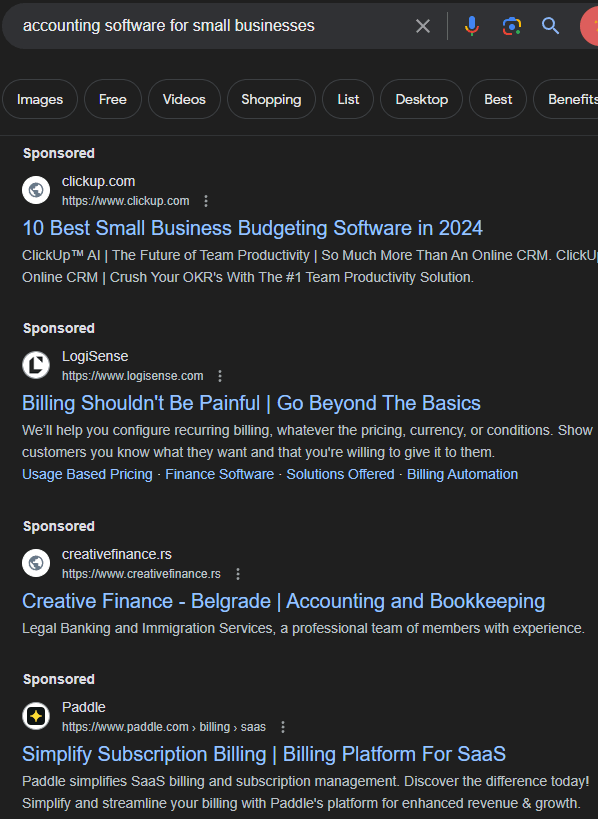
Another great example is Adjust, a SaaS tool for app marketing that creatively combines content marketing, best ASO tools, and LinkedIn ads to support their lead generation and B2B SaaS digital marketing plan. They target marketers with extremely relevant and valuable content that will surely bring them many MQLs.
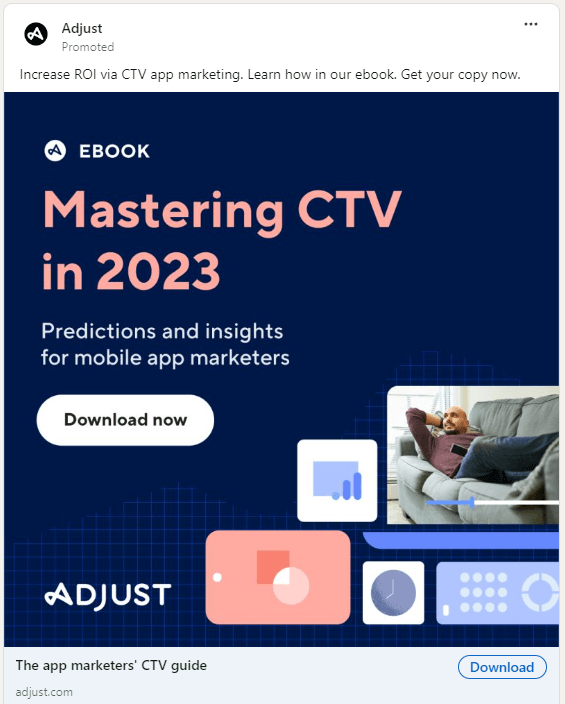
Nurturing
Let’s not forget about the fact that you also need to retain the customers you acquire with your digital marketing strategy for SaaS. That’s where customer nurturing comes into play because it’s all about maintaining contact and building relationships after the initial conversion.
Besides, nurturing will also help you convert free trial and free plan users into paying customers. Developing a nurturing strategy that guides potential customers through the SaaS sales process significantly enhances conversion rates.
Email Nurturing
There is a reason why email is the most frequently used channel during the nurturing process. Businesses that know how to do email nurturing generate 50% more SQLs at a 33% lower cost.[2]
Email nurturing involves sending targeted, personalized emails to guide prospects through the sales funnel and keep existing customers engaged.
For existing customers, you will want to send product tutorials, best practices and tips to help them get the most out of your product and increase retention. You should also always iform users about new features, enhancements, and how they can benefit from them.
These can also work for free trial conversion into paid plan, but it usually takes a little bit more effort to achieve that. That’s where drip campaigns that provide valuable information over time come into play! You should address common pain points while simultaneously showcasing how your product features help them.
| Mailchimp | Create and automate email campaigns with segmentation and personalization. |
| ActiveCampaign | Advanced automation features for complex nurturing sequences. |
Content Nurturing
Content is also a great tool for nurturing. It works best for driving awareness and conversions, but remember that your existing customers should also find valuable information in your content. A comprehensive resource and documentation section on your website will lower churn as customers can easily find answers to their most burning questions.
Plus, they won’t contact your customer support team for every issue that comes up, which can significantly impact their productivity.
Besides documentation, webinars, case studies, and whitepapers with in-depth knowledge, product demonstrations, and Q&A opportunities will always prompt your customers to come back for more and stay loyal to your brand.
You can also share user-generated content and testimonials to build social proof.
Tools
| HubSpot | Manage content creation and distribution, and analyze engagement. |
| WordPress | Create and publish blog content with ease. |
| Wistia | Host and track video content, integrating with your marketing automation tools. |
In-App Nurturing
The onboarding process is your first opportunity to impress new users. Tailoring this experience based on the user’s specific needs and behaviors can significantly impact their long-term engagement and satisfaction.
In-app nurturing does a great job at helping you achieve this goal. The first thing you need to implement is step-by-step tutorials directly into your product to highlight key features and demonstrate how users solve common problems. Along with tutorials, incorporate progress bars or checklists that help users see what they’ve accomplished and what’s next, encouraging them to continue exploring your app.
You can also use algorithms to suggest actions, integrations, or new features based on user activity and usage patterns.
If you want to go the extra mile, enable in-app messages based on user behavior, such as tips for using features that they haven’t tried yet or reminders about unused functionalities that could benefit them.
And if you haven’t yet, implement feedback loop directly into your product to ask users what they think so far.
| Intercom | In-app messaging, live chat, and product tours. |
| WalkMe | Create guided tours and tooltips to enhance user experience. |
| Appcues | Build personalized SaaS onboarding flows and in-app messages. |
Examples
Slack uses in-app messages to onboard new users, providing tooltips and interactive guides that help users understand how to use key features. This reduces friction and accelerates the learning curve, improving user satisfaction and retention.
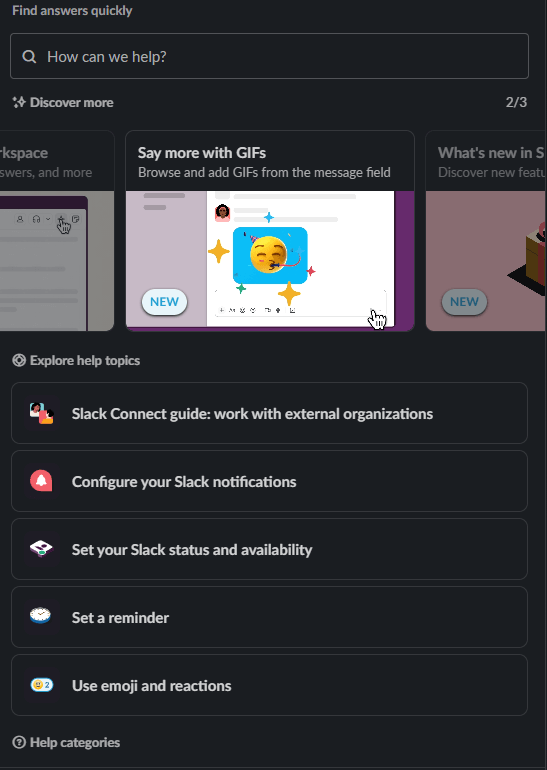
Tips from Seasoned SaaS Digital Marketers
Insights from seasoned experts working for a digital marketing agency for SaaS businesses will help you further clarify your needs and goals, and that’s why we’ve prepared their best tips specifically for you.
Leverage Data-Driven Decision Making
Head of Growth at Digital Marketing Agency for SaaS, Aman Ghataura
“Data is your compass when it comes to digital marketing strategy for SaaS. It’s not just about collecting data but about interpreting it to make informed decisions. Start by setting clear KPIs that align with your business goals, and use advanced analytics tools to track these metrics rigorously. Whether it’s user engagement, conversion rates, or customer retention, let data guide your SaaS digital marketing strategies. Implementing A/B testing regularly across all channels helps us understand what resonates with our audience and optimize our efforts for better results.”
Key tools: Google Analytics, Mixpanel, Optimizely
Focus on Customer Lifetime Value
CEO and Founder at Digital Marketing Agency for SaaS, Alexej Pikovsky
“In the SaaS industry, it’s crucial to focus beyond the initial sale. Work on strategies that increase the lifetime value (LTV) of each customer. This involves not just acquiring new leads but also nurturing existing customers through personalized upselling and cross-selling SaaS digital marketing strategies. One effective tactic we’ve implemented is segmenting the customer base and tailoring our marketing efforts to each segment’s needs and behaviors, which significantly boosts LTV. Also, never underestimate the power of exceptional customer service—it’s a potent marketing tool.”
Key tools: HubSpot, Salesforce, Zendesk
Build Strong Relationships
Head of Clients and Business Development at Digital Marketing Agency for SaaS, George Ilich
“In SaaS, where monthly subscriptions and annual contracts are standard, trust and reliability are key to retention. You should focus on creating personalized communication touchpoints, not just through email, but also through webinars, workshops, and especially through direct interactions. Engage with your clients regularly to understand their needs and adjust your offerings accordingly. A client who feels valued is more likely to be a promoter of your product.”
Key tools: Slack for direct communication, GoToWebinar for hosting webinars, Intercom for on-site customer engagement.
Conclusion
If you don’t want to do digital marketing for SaaS for the sake of it, it’s clear that you need to start with a unified marketing framework and make sure everything you do is consistent and impactful across all customer touchpoints.
Organic marketing strategies like SEO, content marketing, SaaS affiliate marketing, and social media will build you a strong foundation and establish you as an authority in your niche. Supported by insightful and engaging content such as in-depth blog posts, case studies, and interactive webinars, these digital marketing strategies for SaaS will effectively increase your MRR.
But if you want to keep your MRR growing, complement these organic efforts with targeted advertising campaigns via Google Ads and LinkedIn.
However, acquisition is just the beginning. Nurturing your leads through personalized email sequences, valuable content, and interactive in-app messages ensures that your potential customers become long-term users.
Based on everything you’ve learned, here is a SaaS marketing plan & strategy you could implement right away to get long-term results and set the stage for a thriving business:
| Start by creating a detailed content marketing and SEO plan, including the frequency of publishing and type of content for each of your buyer personas and stages of the customer journey. Support your on-page SEO efforts with powerful SaaS link building. To accelerate your growth, start with advertising on Google, LinkedIn, or both, depending on your budget, to get immediate feedback on your content and landing pages. Based on feedback from potential customers, see where you can make improvements and do it ASAP.Once you see your user base growing, it’s time to focus your efforts on lead and customer nurturing and convert as many free trials into long-term paying customers. |
And if you want a B2B SaaS SEO Agency with a relentless focus on results, it’s nice to meet you! At Nuoptima, we get you ready-to-buy customers through strategic SEO services including content, technical optimization, and link building.
And if you’re thinking to yourself “But SEO takes too long!”, let me tell you that our SaaS client Quolum had a 3x traffic increase in only 4 months. If you act now, this can be you in 4 months or less! But if you wait, so will the results. So book a one-on-one strategic call and let us do what we do best – increasing your MRR with SEO.
FAQ
To market your SaaS product use:
- SEO,
- Content marketing
- Social media marketing
- Targeted advertising.
Tailor your messaging on these channels to highlight your SaaS product’s unique benefits and features.
Start by defining your target audience and unique selling proposition. Then, outline strategies for each stage of the buyer’s journey, from awareness to conversion, integrating both organic and paid marketing efforts.
Leverage a combination of content marketing, strategic partnerships, and early adopter incentives. Networking at industry events and utilizing social media platforms can also accelerate customer acquisition.
SaaS companies find clients through targeted digital marketing campaigns, SEO to attract inbound traffic, engaging content that addresses customer pain points, and networking at industry events.
SaaS marketing is different because it focuses on selling software that is continuously updated and requires ongoing customer engagement and support, emphasizing long-term relationships and customer success.
Typically, companies allocate between 15% to 25% of their revenue to marketing, though this can vary based on SaaS growth stage and competition.
SaaS ROI from marketing is calculated by measuring the revenue generated from marketing activities divided by the cost of those activities, aiming to track the effectiveness of marketing investments in driving business growth.
